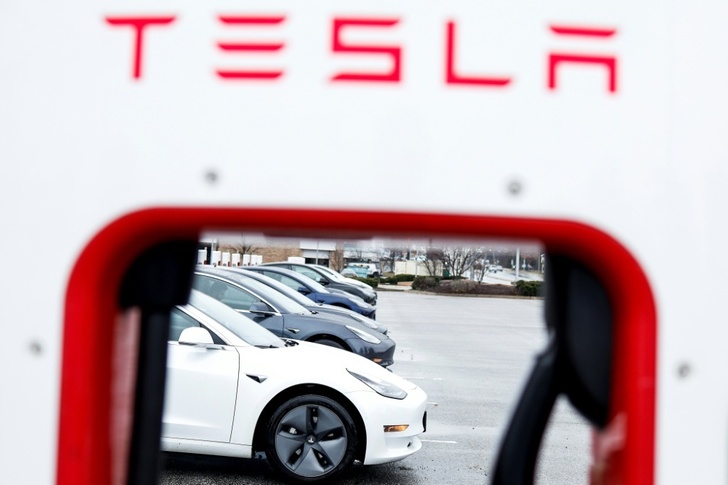Tesla's US charging network will be available to other electric vehicle brands for the first time following White House negotiations with Elon Musk, the Biden administration announced Wednesday.
Tesla has agreed to make at least 7,500 chargers nationwide open to non-Tesla EVs by the end of 2024, according to a White House fact sheet laying out its latest efforts to add 500,000 EV chargers by 2030.
The White House has frequently had prickly relations with Musk but Biden administration staff said Tuesday the billionaire had been responsive when officials contacted major EV players to extend the charging network.
A lack of sufficient charging capacity has been seen as a major hurdle for the EV transition in the United States, with driver fear at the lack of available chargers called "range anxiety."
Currently, Tesla owners can purchase an adapter to charge at non-Tesla EV stations but other brands are not able to do the same at Tesla's network.
Tesla's network of "Superchargers" is widely viewed as constituting a head start over those being built by other companies.
Bipartisan 2021 legislation backed by Biden included $7.5 billion in funding for EV chargers. Tesla's shift to allow charging of other brands with an adapter allows Musk's company to qualify for US subsidies, Biden administration officials said Tuesday.
The Biden administration's policy update also listed charging commitments from other leading companies, including a joint venture between Hertz and BP and initiatives by General Motors, ChargePoint and others.
The administration also unveiled national standards for federally funded chargers to ensure consistency across markets. Under the policy chargers will need to meet minimum reliability levels and be locatable on smartphone apps.
Recent surveys have shown "frustration with chargers that are too slow, too crowded or that just don't work," the fact sheet said, adding that "we are fixing this" with the new standards.
jmb/dw
© Agence France-Presse
Your content is great. However, if any of the content contained herein violates any rights of yours, including those of copyright, please contact us immediately by e-mail at media[@]kissrpr.com.
Source: Story.KISSPR.com

